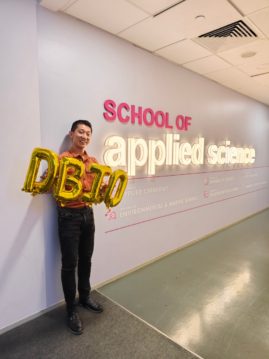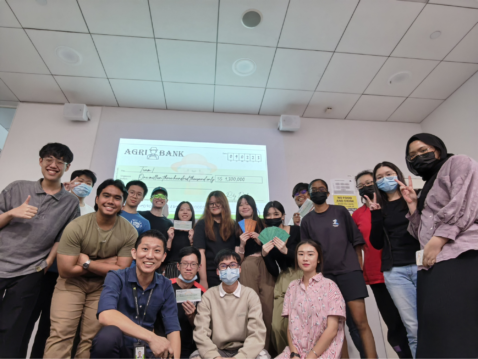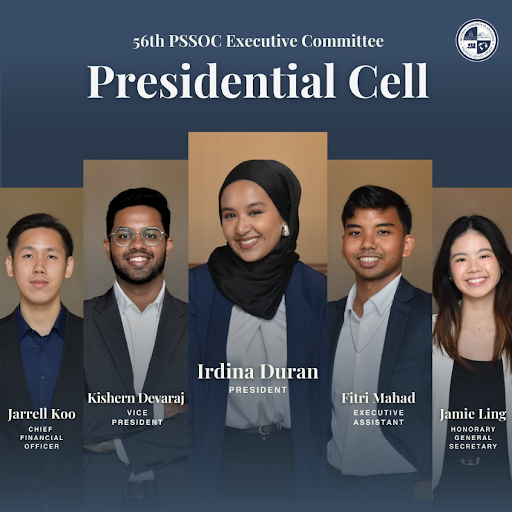Dr Gan Eng Seng, a senior lecturer under School of Applied Science (SAS), has been awarded the Outstanding Facilitator Award for 2023.

This award recognises lecturers who have displayed outstanding understanding of what it is like to be a facilitator and being able to convey that understanding to their class, empowering the students’ learning which is what in Republic Polytechnic (RP) places great importance on.
Where it all began
After getting a PhD in Biological Sciences, Dr Gan worked as a Research Fellow with Temasek Life Sciences Laboratory and Senior Crop Scientist with Archisen.
The opportunity to teach came from the ‘30 by 30’ goal created by the Singapore Food Agency which plans to build up Singapore’s agri-food industry by sustaining up to 30% of Singaporeans nutritional needs by 2030. This plan had an opening for a lecturer with expertise in plant science and agritechnology research, which led to Dr Gan taking up this opportunity.
Even since then, he began to realise the joy of teaching and decided to pursue it in March 2019 and never looked back since.
Being new to teaching, Dr Gan was not familiar with how lessons are conducted in the polytechnic. Fortunately, with the help of his colleagues in SAS, they were able to discuss their situations and find a solution for it.
Though he has only been teaching for four years, he has continuously shown his dedication to nurturing his students, which eventually earned him the honourable award of Outstanding Facilitator.
The best trait a facilitator could have
Dr Gan believes that the best trait a facilitator could have is adaptability, and being able to thrive in any circumstance is integral to your job as a facilitator.
“Know your content,” Dr Gan advised. “There are different dynamics between classes every semester so I used it as an ‘experiment’ – how you can impart your knowledge to the students effectively. We have to be fluid in knowing what would work best for students to learn and for that, you yourself need to know the content of what you will be teaching.”
He has a ‘Teaching How To Fish’ philosophy, in which he believes it is important for students to take initiative rather than having him spoon feed his students with the content. This way, his students know how to be independent and try to learn and get answers on their own.
Learning from motivational speakers, he observed how they present their ideas and see how students could further improve their presentational skills. Additionally, he also expressed his love of reading books as a way to “keep myself updated with knowledge”. Through this, his teaching style came naturally.
Building rapport with students
“I don’t see myself as a lecturer, just someone who is just a little bit more experienced than the students. Most of us are very emotional creatures and we like to listen to people who are closer to us. If the relationship is good, they will listen to me,” said Dr Gan.
Dr Gan does not aim to uphold any sort of hierarchy in his classes but instead focus on individual rapport. He also actively learns from the feedback he gains while teaching, whether that may be how his jokes land, or what are some good things he observed his students do.
“As long as you have the heart for the students, they can feel it,” he added.
JY Ng, a student taught by Dr Gan, commended him on his ability to establish strong connections with his students.
“He takes opportunities in class to know us better, if not, out of class too,” he shared.
Additionally, his student finds it amusing at how Dr Gan “employs a communication style that resonates with us, the Gen Zs”.

Curious to learn
Dr Gan wants to give his students an environment where students can freely ask questions and let their curiosity free. He believes that students should take advantage of the small class size and ask whenever they have doubts as “the only stupid question students can have is the ones that are not asked”.
“Get as many fishes as possible to increase knowledge gained. Create problem solvers rather than followers,” said Dr Gan.
When his students come across learning gaps, Dr Gan encourages them to google their questions using certain keywords and summarise what they find to get their answer. This links back to the self-driven and independent habit Dr Gan is aiming to foster in his class, and this method also allows his students to be capable of integrating what they learn to build something for themselves to understand the point.
“He will look for us individually or ask the team to stay back after class or during break and help us,” Low Jia Zong, another one of Dr Gan’s students, shared.
Advice for students
For any students reading this article, Dr Gan was also once in your shoes. He was once a student too and although he loved History, he hated the assessments.
He then learned of the method of gamifying the learning experience. For example, after getting a load of work done, you can treat yourself to a snack or maybe take a walk. This way, Dr Gan believes the learning in general becomes palatable.
And for any students who are struggling or doubting their progress in learning, Dr Gan has some advice for you.
“Sometimes the effort put in and the results gained do not match. Don’t worry too much, whatever you put in today will come back to benefit you in the future,” he shared.
“The path to success is having both faith and aspiration,” said Dr Gan.






